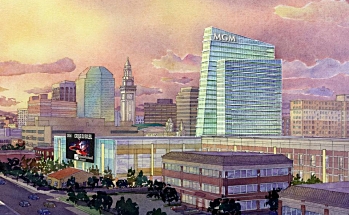 Officials in Springfield, Massachusetts have been unabashed about their support of the proposed $800 million resort and casino MGM Resorts International is planning to put up in the city. That’s why it comes as little surprise that these same officials are trying to keep a proposed repeal of the Massachusetts casino gambling law from being included in the November state ballot.
Officials in Springfield, Massachusetts have been unabashed about their support of the proposed $800 million resort and casino MGM Resorts International is planning to put up in the city. That’s why it comes as little surprise that these same officials are trying to keep a proposed repeal of the Massachusetts casino gambling law from being included in the November state ballot.
Springfield mayor Domenic Sarno led a filing of a motion with the Supreme Judicial Court, the state’s highest court, to prevent voters from having the power to vote on whether the state’s casino law, which was enacted in 2011, will be taken off the docket, putting to waste all the time and money (in the millions of dollars) spent by all parties involved in coming this close to doling out those coveted casino licenses.
Springfield, in particular, will be devastated if the repeal is successful. After all, it was one of the few cities in the state that overwhelmingly approved to have a resort and casino built within its borders. And with no direct competition for that casino license in western Massachusetts, MGM Resorts is in a strong position to claim that license for the state gambling commission in the coming months.
All those days of planning and negotiations could end up going for naught if opponents of the casino law are successful in putting the repeal question on the November ballot. That’s what officials from Springfield are trying to fight, calling its own motion to have the repeal blocked as an act to “protect the city’s rights”.
From the looks of things, Springfield’s motion is only the latest chapter in what has turned out to be quite a dramatic, and often times contentious, process in Massachusetts. If it’s not enough that operators have generally had a hard time negotiating with their proposed host communities, a proposed repeal could end up derailing everything some of these operators and their host communities have worked on for the better part of two years.